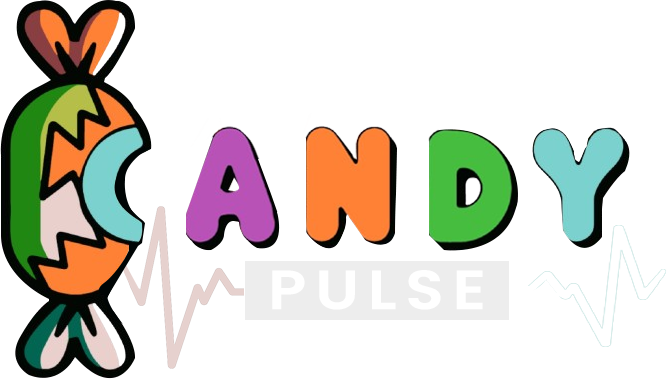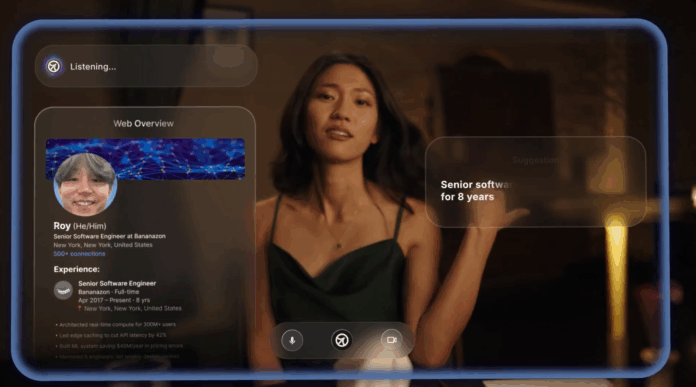
Last month, Roy Lee was suspended from Columbia after he was accused of using AI to “cheat” on technical job interviews for Amazon, Meta, and TikTok. On Sunday, he announced that he raised $5.3 million to start Cluely, a new startup that aims to allow users to similarly “cheat on everything.”
Cluely went viral when it launched earlier this week thanks to a commercial Lee posted on X. In the video, Lee bumbles his way through a date. A large UI sits between him and his date, feeding him information about the woman’s interests and coaching him on how to talk to her.
In an interview, however, Lee told me that his AI tool is not really cheating.
“Initially it will feel like cheating, but if we win, nobody will think this is cheating,” Lee told me.
Cheating or not, after testing Cluely myself, I’m not sure it will help anyone land a job.
“Everytime you ask me something I just hit command+enter and you can’t really see that I’m using it and you also can’t really see that I’m reading any responses, but Cluely is kind of just sitting here, helping along,” Lee said when I spoke to him on Zoom on Tuesday..
Lee wants people to use Cluely on “Sales calls. Meetings. Negotiations,” the “manifesto” on the software’s website says. “If there’s a faster way to win—we’ll take it. We built Cluely so you never have to think alone again. It sees your screen. Hears your audio. Feeds you answers in real time. While others guess—you’re already right.”
Cluely is out. cheat on everything. pic.twitter.com/EsRXQaCfUI
— Roy (@im_roy_lee) April 20, 2025
Cluely’s viral video racked up more than 10 million views on X. A lot of the reactions were negative.
I guess I just didn’t fully grasp how many losers there are in the world. Like I knew there were a lot of losers out there, but the amount of losers that would have to exist to, one, make this product feasible and, two, to make this ad’s existence possible is hard to process. https://t.co/RxM8X8wgAW
— Ryan Broderick (@broderick) April 21, 2025
I don’t understand why a guy would commission an expensive commercial about his AI app in which he goes on a date, lies to a girl about his age, pays for her fancy dinner, and then despite all this couldn’t get laid. He willingly chose this script. Can someone please explain? https://t.co/by5PE2Ghcb
— Eli Schiff (@eli_schiff) April 21, 2025
Lee said he expected the critiques that he’d created a dystopian piece of software that would “destroy the human connection and the essence of humanity.”
“I’m pretty comfortable taking that negative PR,” he told me.
Cluely is the latest attempt to bring large language models into the “real world” after products like the Humane Pin and Rabbit R1 were widely hyped but were widely disappointing. It’s also reminiscent of a project that Joseph wrote about out of Harvard, where students put facial recognition software into a pair of Meta smart glasses.
“The second realm of negative feedback is that ‘cheating is inherently unethical and immoral.’ This is where we’re trying to do a lot of reframing around what exactly defines cheating, what cheating really is, and what cheating will look like in a future that is AI native,” he said.
Lee also went viral earlier this year when he used an AI program of his own designed to pass the brutal technical interviews of Amazon, Meta, and TikTok. He claimed he landed gigs at several of the companies but didn’t take any of them. Instead he uploaded a video of himself using the tool to YouTube and used the buzz to launch Interview Coder, a commercial version of the software.
At the time, Lee was a student at Columbia, and someone sent a letter to the university claiming to be a concerned Amazon executive. The letter accused Lee of “cheating” in the interview. Columbia took disciplinary action. Lee dropped out of the University and struck out on his own with another former student Neel Shanmugam.
Interview Coder worked by watching your screen, pinging ChatGPT, and then giving you an answer to the coding problem it saw in an overlay. Cluely is the same thing but the use case is expanded beyond code.
I tried out a test version of Cluely in a mock interview with Emanuel Maiberg. We pretended Emanuel was interviewing me for a position at 404 Media and I used Cluely to shape my answers. Emanuel would hit me with a basic interview question: “What are your strengths? What do you need to work on?” And I’d hit “command+enter” after he spoke.
Then Cluely would answer the question it had just heard Emanuel ask me and put its answers in an overlay at the top of my screen. It would come in two pieces: a bright white script I could read verbatim and a darker piece of text below that explained the AI’s reasoning. Because of the way Cluely is programmed, it doesn’t show up in recordings or even screenshots.
It also wasn’t that impressive. A few questions into the conversation and Emanuel and I realized it was just feeding me ChatGTP answers to the questions as if I’d typed them in a browser. It also took 20 seconds each time to generate, with Emanuel and I staring at each other while we waited. Not the kind of thing that would work in a real world situation.
Lee said that the company’s top priority was removing latency from the system and that it moves much faster if the user turns off screen recording and just has Cluely listen. I asked if his software was just pinging ChatGPT on the backend. “We have a bit of fine tuning that happens and there’s a couple of other models going on, but essentially yes,” he said.
Cluely’s major innovation is user experience. Most of the systems it’s using already exist. “The only thing the product really showcased [in the commercial] was ChatGPT in your glasses,” Lee said. “The only reason it was sort of crazy was because it was just a different experience layer. I think it would be foolish to think that there is a future where ChatGPT doesn’t come in your glasses.”
Lee described himself as an AI maximalist. As I transcribed this part of our conversion, I remembered that Lee had Cluely overlaid on his screen, helping him craft his answers as we spoke, meaning some portion of his answers were crafted by AI. “I think the pessimistic case is to think, ‘Okay, now all of humanity is just gone and there’s nothing I can do. I’m just going to be a walking flesh machine for AI to regurgitate AI’s thoughts,” he said. “I don’t think that’s what makes us human at all. In fact, I think the true essence of what makes us human is our taste and our preferences and our sparks of inspiration and thoughts. That’s just supercharged by AI.”
What we have seen from AI so far, though, is that it gives a sheen of sameness to everything. There are some creative people who have found uses for generative AI, but they have often incorporated it into their ideation process and then use their own creativity or taste to create a finished product; Cluely is being developed for time-sensitive, real-world uses where there is unlikely to be much time for refinement.
Both Lee and the marketing copy for Cluely hammer home that technical innovations are often thought of as cheating. Math teachers worried about the advent of calculators. “I would really question whether you think what we’re doing and enabling here is cheating,” he said. “I think, fundamentally, the product is not different from a better version of ChatGPT voice mode.”
I pointed out that his own marketing for Cluely says that the software allows users to “cheat on everything.”
“It’s a viral hook and it’s super tied into my origin story with Interview Coder, right?” Lee said. “We want to make everybody use AI. We are true AI maximalists.”
I asked him to tell me his vision of the future.
“I will never have to remember when the American Revolution was,” Lee said. “I will never have to remember what the capital of Wisconsin is. Every single thing that is rote memorization, that relies on facts that you don’t need in the moment, that are not intrinsically necessary for a human to learn, you won’t need that anymore.”
“Entire school systems will be gone. The entire K-12 education. Everybody sits in a room eight hours a day, takes multiple choice exams. In my future, everything we understand education to be, will be completely gone.” He said that people will explore whatever topics they want from the earliest ages in the “most efficient way possible.”
“History will be on the side of the maximalists,” he said.
According to Lee, 80,000 people have signed up for a free Cluely account. An additional 700 are paying for it.




